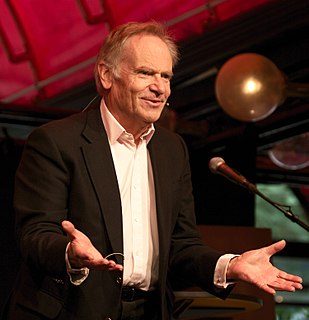A Quote by Gilles Deleuze
I have no admiration for culture. I have no reserve knowledge, no provisional knowledge. And everything that I learn, I learn for a particular task, and once it's done, I immediately forget it, so that if ten years later, I have to get involved with something close to or directly within the same subject, I would have to start again from zero, with some few exceptions.
Related Quotes
Opportunism towards knowledge is a utilitarian demand that knowledge must be immediately practical. Just like with sociology where we hope its purpose is to serve society, however, the true purpose of sociology lies in its impracticality. It cannot become practical or else it loses its meaning. Perhaps we should learn a different kind of knowledge: the knowledge to question knowledge.
Each is liable to panic, which is exactly, the terror of ignorance surrendered to the imagination. Knowledge is the encourager, knowledge that takes fear out of the heart, knowledge and use, which is knowledge in practice. They can conquer who believe they can. It is he who has done the deed once who does not shrink from attempting again.
Most people in AI, particularly the younger ones, now believe that if you want a system that has a lot of knowledge in, like an amount of knowledge that would take millions of bits to quantify, the only way to get a good system with all that knowledge in it is to make it learn it. You are not going to be able to put it in by hand.
Men look on knowledge which they learn--or might learn--from others as they do on the most beautiful structures which are not their own: in outward objects, they would rather behold their own hogsty than their neighbor's palace; and in mental ones, would prefer one grain of knowledge gained by their own observation to all the wisdom of a thousand Solomons.
In medicine, there's a fairly large but still finite body of knowledge that you need at hand for most of your daily work. It takes a few years to learn it, but once it's there, it's there. With writing, on the other hand, every new book - indeed, every new story - is a fresh and terrifying reinvention of everything.
































